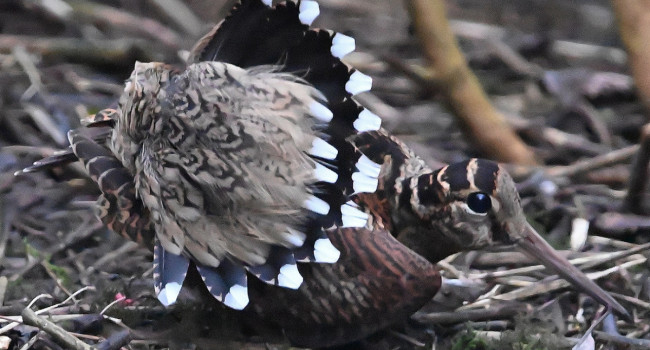Greg Conway
Senior Research Ecologist
Greg is responsible for the organisation of national and regional single species surveys, as well as data analysis and project development.
Interests & Responsibilities
Since arriving at BTO in 1998, Greg has worked on a variety of research projects involving birds in farmland, upland margin and woodland habitats. His main responsibilites have involved the development, organisation and analysis of national surveys for Nightjar (2004), Woodlark & Dartford Warbler (2006), Ringed Plover & Little Ringed Plover (2007), Nightingale (2012) and Woodcock (2013), as well as many other habitiat and species assemblage focused research.
Since 2007, Greg's interest in the bird assemblages of managed forests led to the development of a bird-monitoring study for common and widespread species within a plantation forest, and field studies of human recreational disturbance and predation pressure on ground nesting birds in Thetford Forest (Nightjar and Woodlark). The latter project is operating through a close external partnership with the University of East Anglia (UEA) and the Forestry Commission. Co-supervision of MSc research students has involved research projects on Firecrest, Nightjar, Stonechat, Willow Warbler, Yellowhammer, as well as a PhD investigating foraging ecology of Nightjar and wintering ecology of Blackcap.
During 2010 and 2011, Greg worked within the Ringing Unit and was the organiser of the CES and RAS schemes. This involved promotion and development of the schemes, in conjunction with other aspects of the ringing and nest recording schemes, as well as data analysis and reporting.
More recently Greg has used a variety of tracking technologies (radio telemetry, geolocators and GPS) to investigate aspects of foraging habitat use, dispersal migration strategy and population connectivity for a number of species including Nightjar, Tree Pipit, raptors and large gulls.
Other Information
Outside work, Greg is an active birder and ringer. Much of his ringing activity is centered around training and use of developing tracking technologies, as well as on-going studies in Thetford Forest investigating Firecrest, Nightjar and Yellowhammer. His main research interests include the effects of climate change, particularly mechanisms for range change in birds (currently involving a long-running study on wintering chiffchaff in southern England), migration and the importance of conifer plantations to birds.
Qualifications
PhD Avian ecology, University of East Anglia BSc (Hons) Environmental Science, University of Plymouth
Recent BTO Publications
Other Publications







Share this page